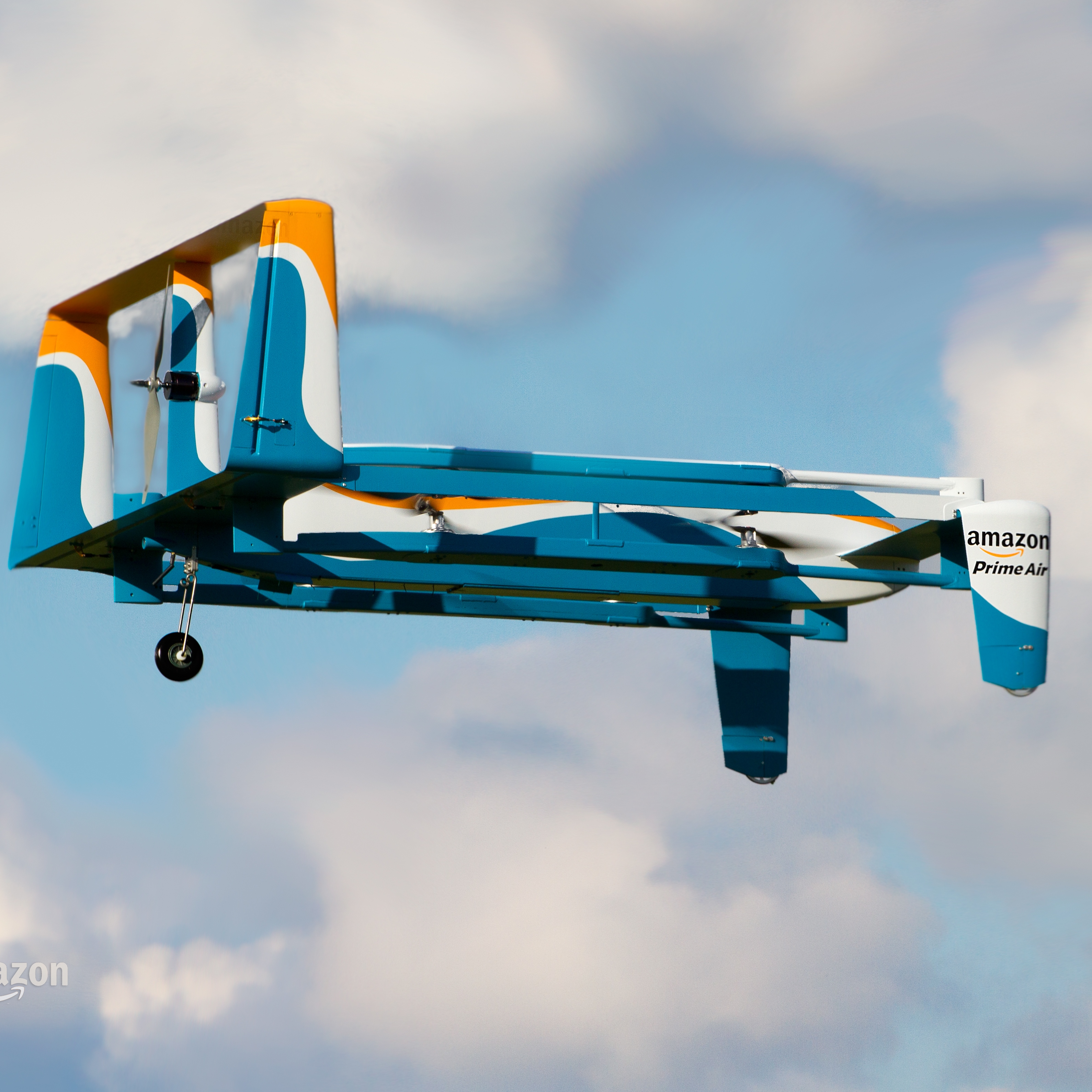
The U.S. Patent and Trademark Office earlier this week approved U.S. patent number 9,714,089 for Amazon.com Inc. (NASDAQ: AMZN). The patent is called “Trigger agents in video streams from homes” and would allow Amazon to analyze data it collects while delivering merchandise using unmanned aerial vehicles (UAVs), more commonly known as drones.
What the company has devised is a system that includes a drone-mounted camera to capture an image and at least one processor that could examine the image and execute programmed instructions on what to do with the image. Ultimately, the data gleaned from the image is collected in a huge database from which it can be sliced and diced.
For example, as the Amazon drone delivers a package to your door, the drone’s camera would capture an image of your driveway where your kid’s bike is laying on its side and a basketball hoop is attached to the garage. Your well-tended flower garden gets picked up by the camera as does the fact that your house could use a new coat of paint.
From the patent application:
The unmanned aerial vehicle may be configured to record data while delivering the item. In embodiments, the captured data may be received by a computer system and properties about a destination for the delivery may be identified by analyzing the data. A recommendation may be generated based at least in part on the identified properties.
The drone’s processor would be able to identify the various items in the image and relay that information to a computer system. Once the image is converted to bits and bytes, there is virtually no limit to what Amazon could do with it.
That data could be used by Amazon to present you targeted ads for a new bike, a new basketball hoop, or new sneakers. How about some new gardening tools and supplies or a list of house painters in your area? This kind of targeted advertising, based on stuff you already own or have demonstrated an interest in is the kind of thing that marketers crave.
And what’s the harm, really? It’s just another ad in the swirl of advertising you are served every day as you cruise the web.
Here’s another way to think about it, however. Amazon would ultimately be collecting this personally identifiable data (your name and address, at least) on millions of its customers and there is nothing stopping the company from selling that data to other firms who might also want to sell you something.
That, too, may seem harmless enough. After all it’s only advertising. And what the drone captures is no more than what a package delivery driver would see. But if you saw the delivery driver taking a photo or video of your house, wouldn’t you at least ask why? Amazon’s “trigger system” doesn’t answer questions because it doesn’t have to. You won’t even know it’s there.
Thank you for reading! Have some feedback for us?
Contact the 24/7 Wall St. editorial team.





